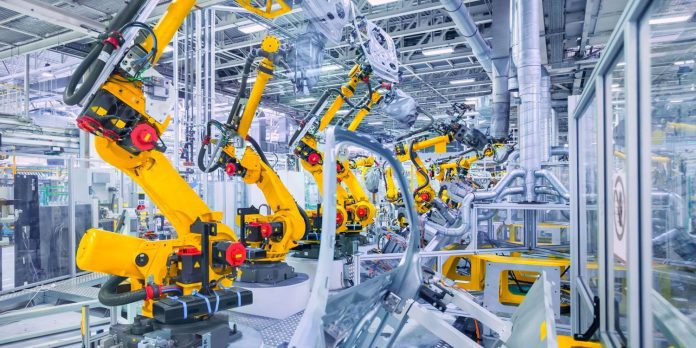Artificial intelligence (AI) will boost jobs during the next two decades, except in manufacturing, transport and city administration. New research finds digital factories, intelligent mobility and smart cities will cause massive disruption in the period to 2037 with as many as one in four jobs vanishing, even as AI creates more jobs than it displaces overall.
A new study by PwC, which focuses on the UK job market, says there will be “winners and losers” among industry sectors as digital technologies transform the workplace. It predicts seven million UK jobs will be automated in absolute terms in the next 20 years. At the same time, around 7.2 million new roles will be created, giving the UK a net boost of 0.2 million jobs.
The most positive effect will be in the health and social work, where PwC estimates that employment could increase by nearly one million, equivalent to around 20 per cent of existing jobs in the sector, driven by new technologies. Professional, scientific and technical services will see a 16 per cent jump, and the education sector will get a six per cent staffing increase.
On the other hand, PwC estimates the number of jobs in the manufacturing sector could be reduced by 25 per cent, representing a net loss of nearly 700,000 jobs, as digital factories take charge. Transport will see a decline of 22 per cent as transport systems are automated, and public administration will see a fall of 18 per cent as cities get smarter.
 John Hawksworth, chief economist at PwC, said: “Major new technologies, from steam engines to computers, displace some existing jobs but also generate large productivity gains. This reduces prices and increases real income and spending levels, which in turn creates demand for additional workers. Our analysis suggests the same will be true of AI, robots and related technologies, but the distribution of jobs across sectors will shift considerably in the process.
John Hawksworth, chief economist at PwC, said: “Major new technologies, from steam engines to computers, displace some existing jobs but also generate large productivity gains. This reduces prices and increases real income and spending levels, which in turn creates demand for additional workers. Our analysis suggests the same will be true of AI, robots and related technologies, but the distribution of jobs across sectors will shift considerably in the process.
“Healthcare is likely to see rising employment as it will be increasingly in demand as society becomes richer and the UK population ages. While some jobs may be displaced, many more are likely to be created as real incomes rise and patients still want the ‘human touch’ from doctors, nurses and other health and social care workers.
“On the other hand, as driverless vehicles roll out across the economy and factories and warehouses become increasingly automated, the manufacturing and transportation and storage sectors could see a reduction in employment levels.”
The UK’s north-south divide, which recent governments have sought to unwind through the devolution of centralised power to the regions, will be further entrenched by AI, potentially, reckons PwC.
London, home to 28 per cent of the UK’s professional, scientific and technical activities and 31 per cent of its information and communication sector, will experience the most positive impact, with two per cent more jobs. In contrast, regions in the North and the Midlands, with a higher proportion of industrial jobs open to automation, will see a one per cent slide on existing job numbers.
The report says the UK Government will be required to steer the economy towards a more optimistic scenario by mitigating the costs of displacement and maximising new digital technologies. “There is the opportunity to build new regional identities around new services as a result of these sectoral changes, which could also help enhance civic pride,” said PwC in a statement.
Euan Cameron, UK AI leader at PwC, commented: “The fourth industrial revolution will favour those with strong digital skills, as well as skills like creativity and teamwork, which machines find it harder to replicate.
“Rapid technology change has often been associated with increases in wealth and income inequality, so it’s vital that government and business works together to make sure everyone benefits from the positive benefits that AI can bring.”
The UK government announced a £1 billion joint investment to stimulate the country’s AI industry in April, followed earlier this month with an agreement with the French givernment to work together to improve digital services through state-level collaboration on AI, data and digital administration. Most developed nations have made a major play of state AI policy in 2018, with the notable exception of the US.

